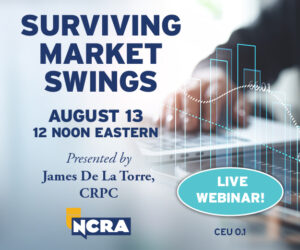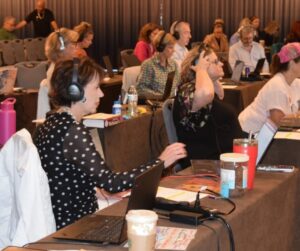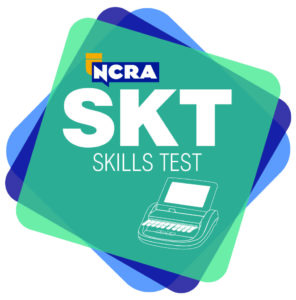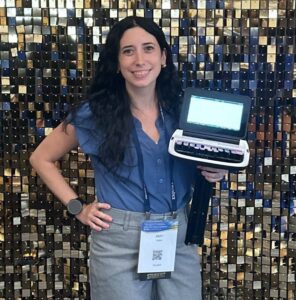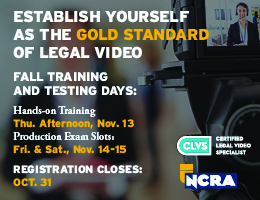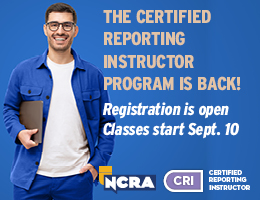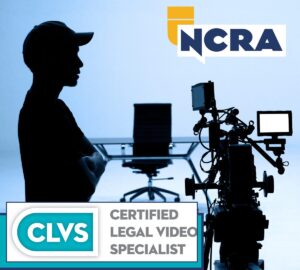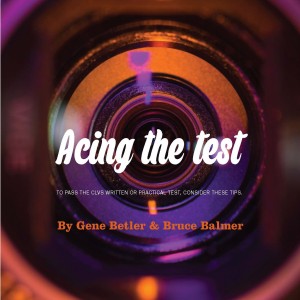 By Gene Betler and Bruce Balmer
By Gene Betler and Bruce Balmer
NCRA offers training in a number of specialty programs, including one for legal videographers who desire to capture a legal video record for use in the legal marketplace. The program consists of three parts — a seminar, a written knowledge test, and a practical skills test — and it instills in the candidates an understanding of both the necessary standards for the court reporter and the legal videographer who work in this realm. Here are a few tips for those who are ready to take the tests.
Getting ready for the written knowledge test
When you attended the CLVS seminar, you were given the latest version of The Guide to Video Depositions. This source book is what you will need to prepare for the entire CLVS exam.
After you attend the seminar, give yourself a few days or so to absorb everything that you just learned. Read the book, and then re-read the book. Just before taking the exam, read the book again.
Although some of the questions test a general knowledge of the subject and are easy to spot within the guide, many questions are designed to test your understanding of the subject matter. The answer to these will be harder to find when returning from the exam to check your response. For example, you may be given a definition and then may be asked to select the correct term. This would be a general knowledge question and easy to point to in the guide. On other questions, you may be given a scenario with a specific recording issue and are required to select the likely cause. You will not find the scenario by looking in the book, but you will be able to find what can cause that type of issue.
As you prepare for the written knowledge test by reading your guide, make sure that you don’t just recognize the words, but that you understand the concepts behind those words.
What to know for the practical skills test
When the CLVS exam was first started, the sequence was to take the written and then the practical. But in recent years, that requirement has been removed, and candidates may take the practical before they have completed the written exam. Please note that the CLVS Council — as the members of the committee who rotate in to oversee the exam — has found that if candidates are not ready for the written, they are not ready for the practical.
Each candidate is given 30 minutes to complete the practical skills test, which includes successfully recording a 10-minute deposition. The room will already be fitted with the equipment, and all the equipment will be set up correctly. There is no troubleshooting required. However, the test candidates are required to correctly calibrate and identify the equipment, and they will be graded to the CLVS standards, which, again, are in the book.
If that’s not enough to help you prepare, the book also has a checklist on what a CLVS should consider during each deposition. While that checklist is not the test, knowing it will guide you through the practical skills test.
Some CLVS candidates have asked if they can provide their own equipment. The CLVS Council has considered this question before, and the Council members understand that not being able to use personal equipment can be unnerving for candidates. However, the decision to use standard NCRA-owned equipment was weighed against the cost of having each candidate ship their deposition equipment to the testing sites, as well as the additional time it would take for each person to set up and tear down their equipment. Doing so would severely limit the number of tests NCRA could offer in a day. The CLVS practical skills test only examines the candidate’s ability with and knowledge of the equipment parts that are common to all systems that meet the CLVS standards. Common problems for candidates come from not knowing basic manual functions or how to do procedures correctly, not following the CLVS standards, or not understanding why there are standards.
Three steps to a new career
NCRA’s CLVS Council continually reviews the material in its seminars and book to make sure it is offering candidates the latest information on the legal video industry, and the Council members see a bright future ahead for candidates. If you think that adding legal video to your business is the right step for your business, consider participating in the seminars and taking the two tests. It’s pretty much all by the book.
Gene Betler, CLVS, and Bruce Balmer, MBA, CLVS, are co-chairs of NCRA’s CLVS Council. They both became interested in the legal video industry and the CLVS program as second careers and a way to work with their wives. Gene and Jo Ann Betler, RDR, CRR, CBC, CCP, CPE, CLVS, own Betler’s Reporting & Legal Video Services, LLC., in Huntington, W.Va. Bruce Balmer and his wife Deborah Dusseljee, RPR, own CompuScripts, Inc., in Columbia, S.C. Gene can be reached at gene@brlvs.com. Bruce can be reached at bbalmer@compuscripts.com.

